Multimodality: improved access to information on EuroVelo.com
What is multimodality?
Cycling tourism is gaining momentum as a new way to travel in a sustainable way. Indeed, it is a great option to limit your carbon footprint while at the same time discovering hidden gems and fighting mass tourism.
However, you may need to resort to other modes of transport to reach the starting point of your cycling trip if you want to explore further places or simply to come home if you are not cycling on one of the circular routes of the network (EuroVelo 10 – Baltic Sea Cycle Route and EuroVelo 12 – North Sea Cycle Route).
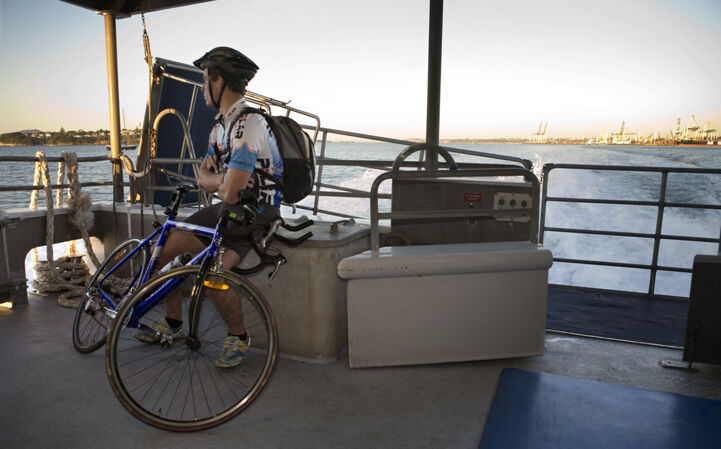
That’s where the concept of multimodality comes in. In the mobility sector, “multimodality” or “multimodal transport” is the combination of several modes of transport on different routes on the same journey. For example, it means taking your bike on a ferry crossing a river, loading your bike on a train to avoid a challenging or undeveloped route stretch, or simply reaching your destination in an easier way if you are not on your best day on a bike.
It can also be helpful in case of bad weather, natural disasters (for example, the floodings in Belgium and Germany during the summer of 2021 or the wildfires in France last summer), or any other unexpected and uncontrolled event.
Finally, having other mobility options can be essential to overcome natural (seas, rivers, mountains, etc) or built obstacles (bridges, tunnels, dangerous roads, etc).
Where to find information?
We mentioned it above, there are many cases where you might end up wondering about other transport options and the possibility to take your bike on board.
EuroVelo.com is there to help you out in these research and planning steps!
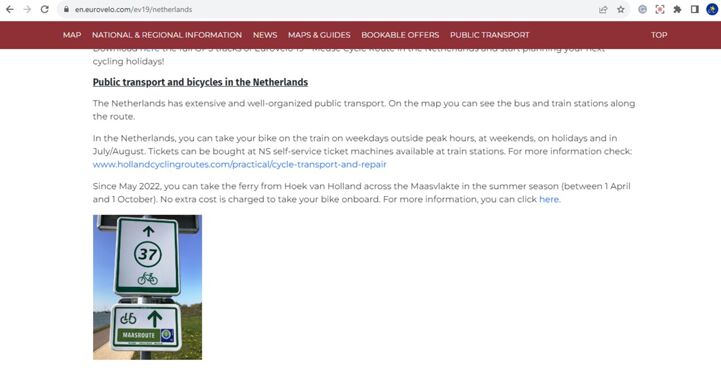
You can find information on multimodality by browsing the different pages of the website, consulting the main route page, the stage page (if different stages have been created), the country page and the country per route page of the section you are interested in.
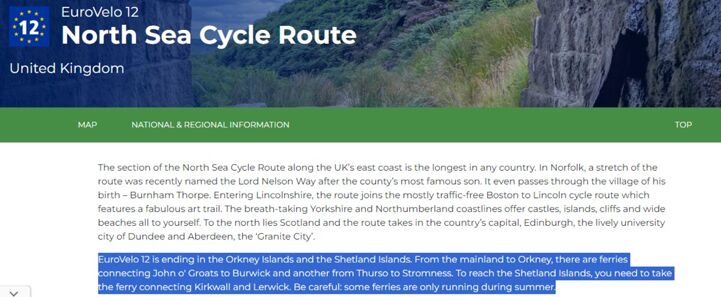
It can take the form of a note on public transport in the description at the top of the page or a website linking towards more information listed in the national information section. The information can also be incorporated directly in the text description of a stage or of the page dedicated to a route in a specific country (please see screenshots below).
EuroVelo.com acts as a centralised source of information, redirecting you towards the best sources of information at the national and regional levels. Indeed, the information on EuroVelo.com remains general, and more up-to-date and precise information can be found on those other websites. For example, do not hesitate to check the National EuroVelo Coordination Centres (NECC) websites, which contain a lot of practical information to assist you in the preparation of your cycling trip, including how to best combine your bike and public transport in their country.
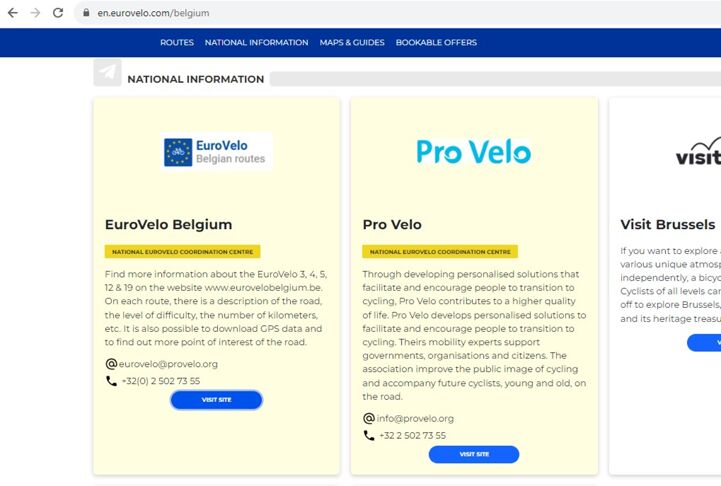
We constantly work to improve public transport information available on the EuroVelo website, also thanks to route-specific Partnerships and projects such as AtlanticOnBike.
More information on multimodality on EuroVelo.com
Last month, we officially released the EuroVelo Route Planner, developed in the frame of the AtlanticOnBike extension project, a long-awaited feature that required some preparations upstream. You can find out more about how to use this new tool in this article.
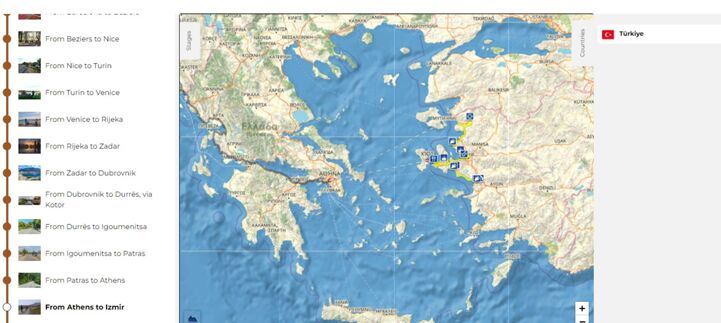
In particular, 27 public transport links were added in relation to its development. You can now view these new white dashed lines indicating public transport connections on the interactive map of EuroVelo.com.
Therefore, research has been carried out to check that these transport connections are still in operation. In consequence, general information was added in the descriptions when missing.
Example of EuroVelo 1 – Atlantic Coast Route:
A particular focus was put on EuroVelo 1 as the development and promotion of the route was at the heart of the AtlanticOnBike project. Indeed, the Atlantic Coast Route is the longest route of the network with its 11,000+ km, crossing many different seas – not by any chance, it is the Atlantic Coast Route! If you travel on EuroVelo 1, you can therefore expect many ferry connections, including internal ones like in the Fjords region in Norway.
In the United Kingdom, there is notably a ferry linking Cairnryan to Belfast but also Rosslare Harbour to Fishguard.
To cross the North Sea and join the Brittany coast, there is another ferry connection between Plymouth and Roscoff.
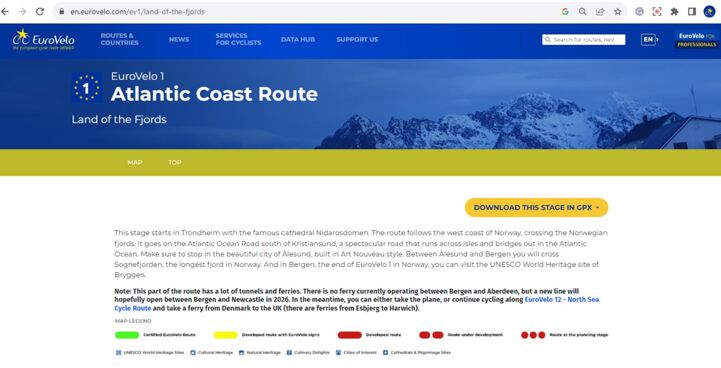
Moreover, there is a positive prospect for the future as the reopening of a ferry line between Bergen (Norway) and Newcastle (UK) by Bergen Cruise Line is planned for 2026.
You can also find out more about multimodality by consulting this mini-series of articles on the transport of bicycles on ferries, trains, and coaches available on our website. We advise you to always double-check the information while planning your trip – and do not hesitate to ask the EuroVelo Discussion Group on Facebook!
If you are particularly interested in the multimodality topic, further reading can be the “Cyclists love trains” report published by ECF in July 2021. It analyses the bicycle-friendliness of 69 European railway operators.
Note: If you are aware of a (new) major ferry/train/bus connection that is not indicated on EuroVelo.com, do not hesitate to share the information with us at [email protected]. May it be to cross a river, to avoid a tricky section of a EuroVelo route or to skip a part containing a dangerous section (bridge without proper cycling infrastructure).
Author: Alexandra Fournier, with contributions from Jessica Casagrande and Mark Sheridan